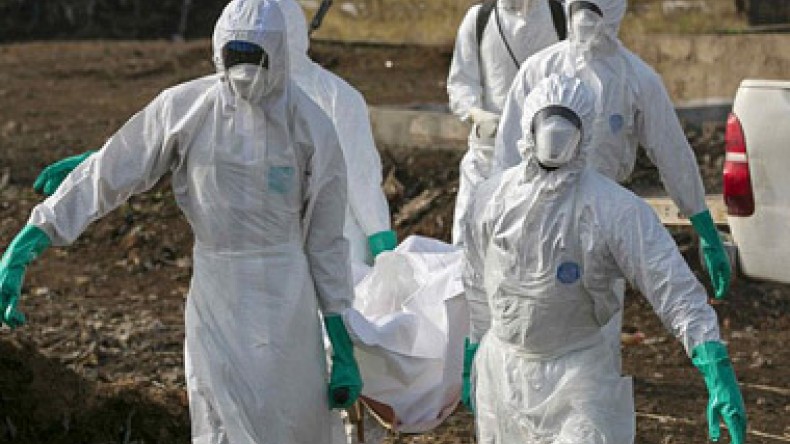
First Ebola vaccine is safe for human use, say scientists
An experimental vaccine to protect against Ebola is safe, the Daily Mail reports, citing research.
The first trial of filovirus vaccines in Africa revealed the drug generated a similar immune response in healthy Ugandan adults, as those reported in American volunteers earlier this year.
It is hoped establishing the safety of the vaccines will help contain the current outbreak in West Africa, which has claimed almost 7,400 lives according to the World Health Organisation.
The DNA vaccines, designed to protect against Ebola and the closely related Marburg virus, have provided a basis for the development of more potent drugs, currently being tested in the US, UK, Mali and Uganda.
Lead author, Dr Julie Ledgerwood, from the National Institues of Allergy and Infectious Diseases (NIAID) and the National Institutes of Health said: 'This is the first study to show comparable safety and immune response of an experimental Ebola vaccine in an African population.
'This is particularly encouraging because those at greatest risk of Ebola live primarily in Africa, and diminished vaccine protection in African populations has been seen for other diseases.'
Scientists from the NIAID developed the two DNA vaccines, that code for Ebola virus proteins from the Zaire and Sudan strains of the disease, and the Marburg virus protein.
Immune responses against these proteins have shown to be highly protective in non-human primate models.
Phase one trials carried out at the Makerere University Walter Reed programme, enlisted 108 healthy adults aged between 18 and 50 from Kampala, Uganda.
The trials took place between November 2009 and April 2010.
Each volunteer was randomly assigned an injection, receiving either the Ebola vaccine (30 volunteers), the Marburg vaccine (30), both vaccines (30), or the placebo (18) at the start of the study, and again at four and eight weeks later.
The vaccines given separately and together were safe and stimulated an immune response in the form of neutralising antibodies, and T-cells against the virus proteins.
Four weeks after the third injection, more than half of volunteers (57 per cent of 17 of 30) had an antibody response to the Ebola Zaire protein as did 14 of 30 participants who received both the Ebola and Marburg vaccines.
However the antibodies were not long-lasting and returned to undetectable levels within 11 months of vaccination.
The current Ebola outbreak in West Africa involves the Zaire strain.
The researchers found both DNA vaccines were well tolerated in Ugandan adults.
Only one serious adverse reaction - a low white blood cell count - was reported in a Marburg vaccine only recipient, but was not thought to be vaccine-related.
Newsfeed
Videos






























